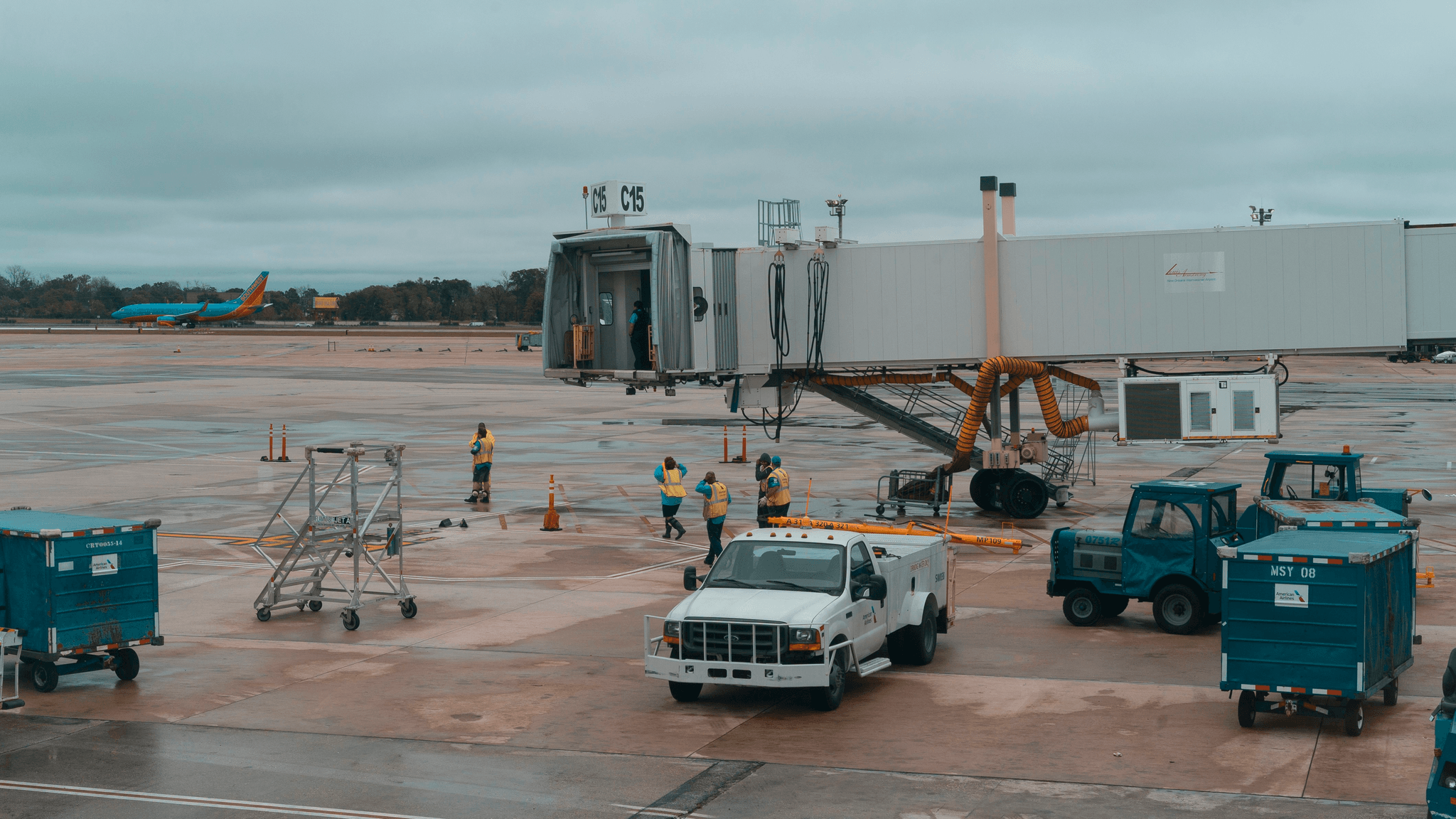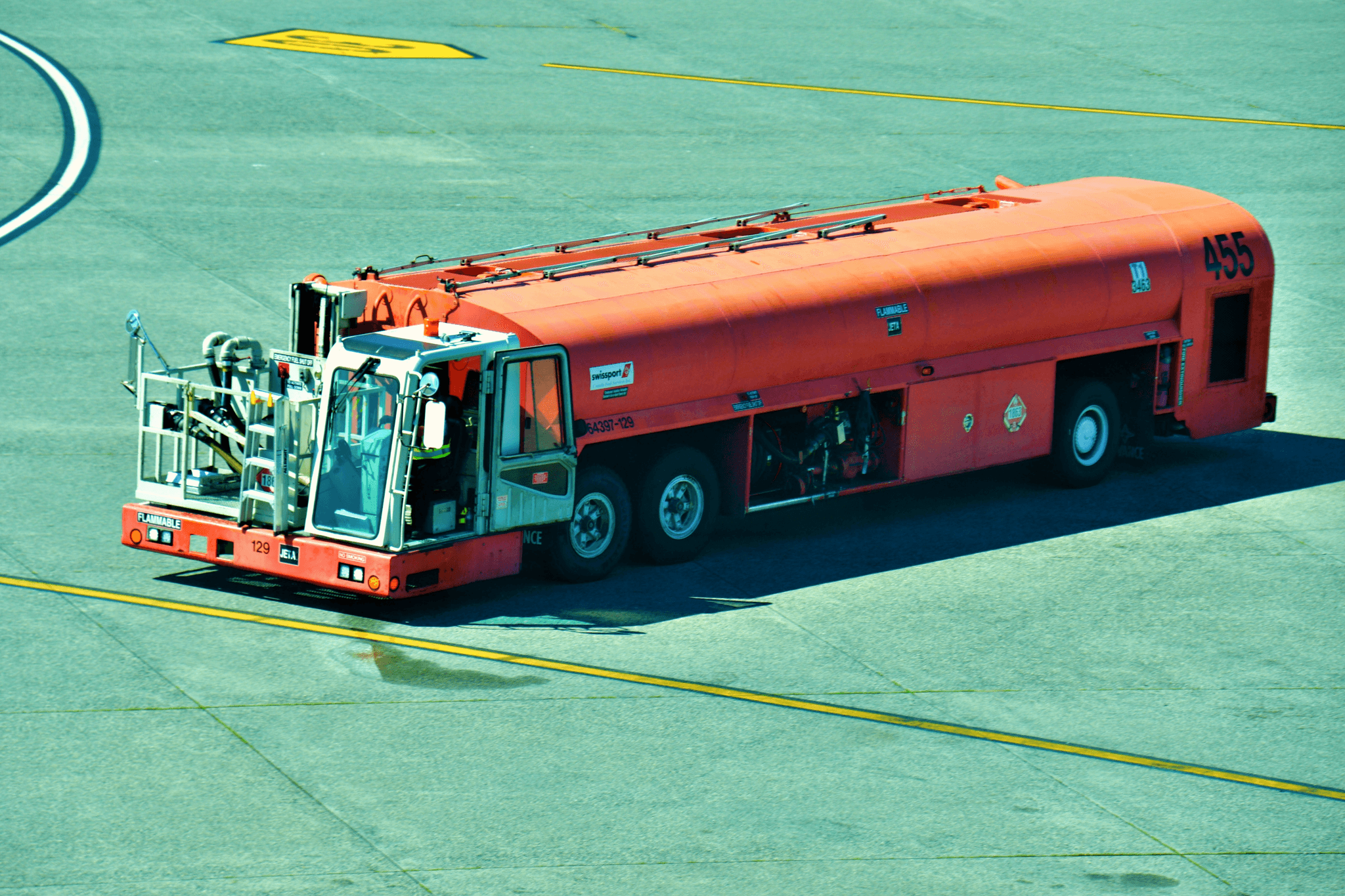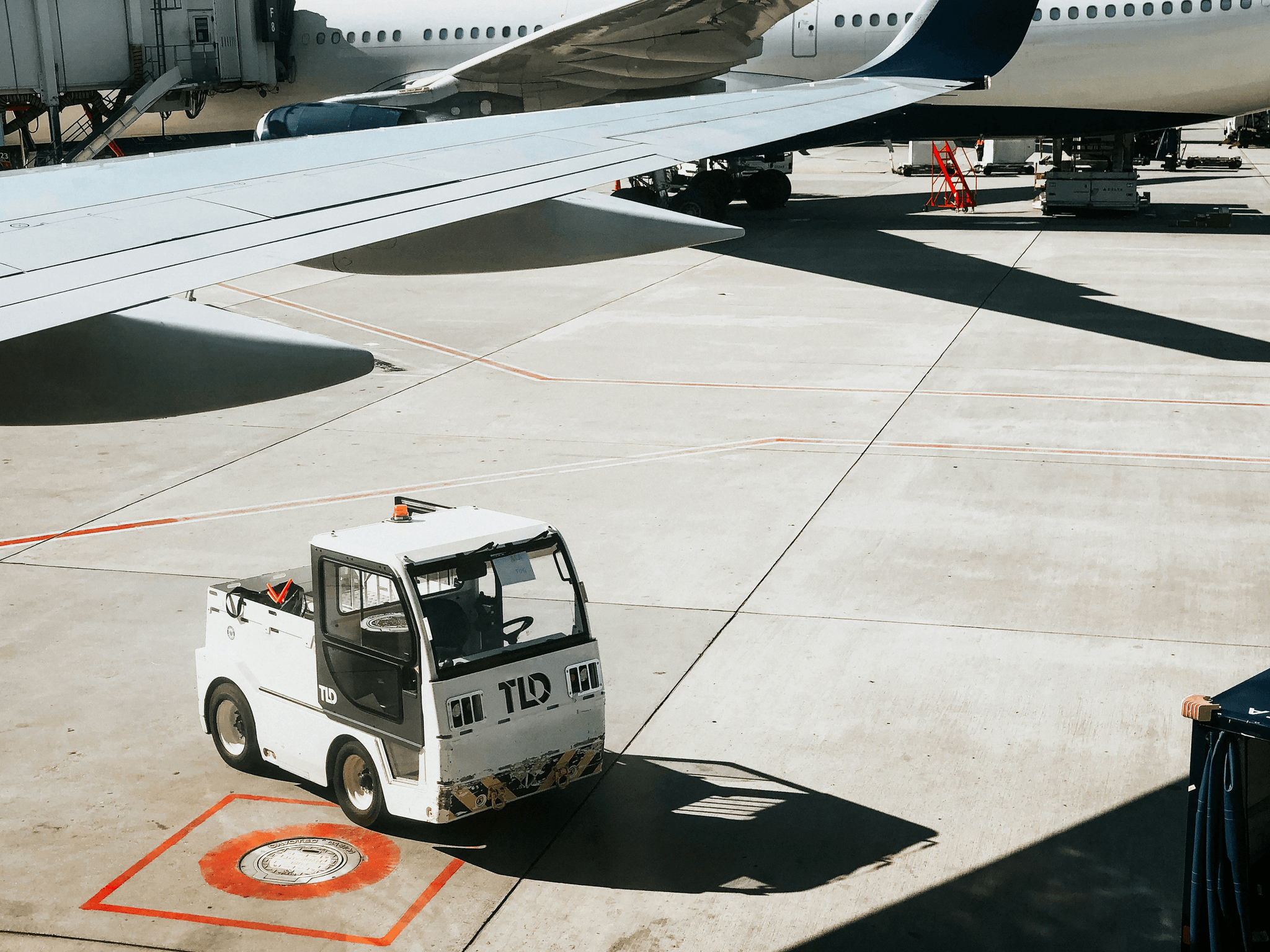Introduction

In the world of aviation, the importance of efficient and safe refueling cannot be overstated. Jet fuel trucks play a crucial role in ensuring that aircraft are fueled quickly and effectively, minimizing downtime and maximizing operational efficiency. Understanding the nuances of these specialized vehicles is essential for anyone involved in airport operations or aircraft maintenance.
Understanding Jet Fuel Trucks
A jet fuel truck is specifically designed to transport and deliver jet fuel to aircraft at airports. These trucks are equipped with features that cater to the unique requirements of aviation fuel handling, ensuring that refuel handling, ensuring that refueling processes are both safe and efficient. But what is commercial jet fuel called? In most cases, it’s referred to as Jet A or Jet A-1, which are kerosene-based fuels used widely in commercial aviation.
Importance of Specialized Aircraft Refueling
Specialized aircraft refueling is critical for maintaining flight schedules and safety standards in aviation. The ability to quickly supply the right type of fuel ensures that aircraft can take off on time without unnecessary delays caused by refueling issues. Moreover, understanding whether jet fuel is the same as aviation fuel helps clarify why these dedicated jet fuel trucks are necessary for optimal performance.
Key Features of Effective Fuel Trucks
When looking for a jet fuel truck for sale or evaluating various models like Haisen's Aircraft Pipeline Refueling Truck, it's essential to consider several key features. These include tank capacity—how much fuel does an airport fuel truck hold?—flow rate capabilities, safety mechanisms, and overall reliability during operation. Effective jet refuelers not only improve efficiency but also ensure compliance with stringent regulations governing aviation fueling operations.
Jet Fuel Truck Basics

What is a Jet Fuel Truck?
A jet fuel truck is a specialized vehicle used to transport and dispense jet fuel directly into aircraft tanks. Unlike regular fuel trucks, these vehicles are equipped with advanced systems to manage the unique properties of jet fuel, including temperature control and filtration processes. This ensures that only clean, high-quality fuel reaches the aircraft, which is crucial for optimal performance and safety during flights.
Types of Jet Fuel Used
There are primarily two types of jet fuel utilized in commercial aviation: Jet A and Jet A-1. Both types have specific characteristics that make them suitable for different operational environments; however, they share similar chemical compositions derived from kerosene. Understanding the differences in these fuels helps airport operators choose the right type based on factors such as climate conditions and aircraft specifications.
Is jet fuel the same as aviation fuel?
The question Is jet fuel the same as aviation fuel? often arises among those unfamiliar with aviation terminology. While many use jet fuel interchangeably with aviation fuel, it's important to note that not all aviation fuels are jet fuels; there are also piston-engine fuels like avgas (aviation gasoline). Thus, while all jet fuels fall under the broader category of aviation fuels, not all aviation fuels qualify as jet fuels specifically designed for turbine engines.
Design and Construction

Design and construction play a pivotal role in the functionality and efficiency of jet fuel trucks. These specialized vehicles are engineered to meet the unique demands of aircraft refueling, ensuring safety, speed, and precision. Understanding their essential components helps operators make informed decisions when looking for jet fuel trucks for sale.
Essential Components of a Jet Fuel Truck
A typical jet fuel truck is equipped with several essential components that ensure effective refueling operations. These include a robust chassis designed to support heavy loads, a sophisticated piping system for fluid transfer, and advanced pneumatic and hydraulic control systems that enhance operational efficiency. Additionally, an electrical system is crucial for monitoring flow rates and safety features, ensuring that the jet fuel truck operates smoothly while minimizing risks during refueling.
When exploring options like Jet Refuelers for Sale, it's important to consider these components as they directly impact the performance of Aircraft Refueling Trucks. Each element works together to provide reliable service; the filtration system removes impurities from the fuel while accurately measuring flow rates during operation. In essence, understanding these components not only informs potential buyers but also highlights why specialized design matters in aircraft refueling.
Haisen’s Aircraft Pipeline Refueling Truck Overview
Haisen’s Aircraft Pipeline Refueling Truck stands out in the market due to its innovative design tailored for high-efficiency refueling services across various aircraft types. This vehicle features an integrated chassis with a well-designed piping system that ensures optimal flow rates while minimizing contamination risks through advanced filtration technology. The pneumatic control system allows operators to manage fueling operations seamlessly, making it an excellent choice for those seeking reliable jet fuel trucks.
One of Haisen's key advantages is its capability to perform underwing refueling services effectively due to its lower height compared to traditional models like the CF5060TJYGX Aircraft Hydrant Dispenser. At just 2 meters tall, this low-altitude hydrant dispenser can access a wider range of aircraft sizes without compromising on performance or safety standards. For anyone interested in finding a jet fuel truck for sale that combines efficiency with versatility, Haisen's offering is certainly worth considering.
Comparing the Haisen Truck to Others
When comparing Haisen's Aircraft Pipeline Refueling Truck with other models on the market, several factors come into play—including height specifications and flow rate capabilities. While many traditional models may boast higher capacities or larger tanks, they often lack the low-profile design that enhances accessibility during underwing refuels—a critical aspect when dealing with various aircraft sizes.
Additionally, while assessing what commercial jet fuel is called—Jet A or Jet A-1—it’s essential to recognize how different trucks handle such fuels efficiently without cross-contamination or spillage issues common in diesel handling systems. The difference between jet fuel and diesel lies not only in their chemical compositions but also in their handling logistics; thus choosing an appropriate vehicle like Haisen's can streamline operations significantly.
In conclusion, understanding these design elements can significantly affect your decision when searching for Jet Refuelers for Sale or specific Aircraft Refueling Trucks tailored for your needs.
Fuel Capacity and Efficiency

How much fuel does an airport fuel truck hold?
The capacity of an airport fuel truck can vary significantly depending on its design and purpose. Generally, a standard jet fuel truck holds anywhere from 5,000 to 12,000 gallons of jet fuel. This substantial volume allows airports to service multiple aircraft in a single trip, enhancing efficiency while minimizing downtime between flights.
Impact of Fuel Capacity on Operations
The amount of fuel a jet refueler can carry has a direct effect on airport operations. A larger tank means fewer trips back to the storage facility, which translates into faster refueling times for aircraft waiting on the tarmac. This efficiency is particularly crucial during peak travel periods when every minute counts in getting planes back in the air.
Flow Rate and Refueling Speed
Flow rate plays a pivotal role in how quickly an aircraft can be refueled using specialized Aircraft Refueling Trucks. The Haisen’s Aircraft Pipeline Refueling Truck boasts high flow rates that allow it to deliver jet fuel swiftly while filtering out impurities like dust and moisture during the process. When comparing different models available as Jet Fuel Trucks for Sale, consider both flow rate and overall design; features like those found in Haisen’s model ensure quicker turnaround times without compromising safety or quality.
Safety Features

Ensuring safety in the handling of jet fuel is paramount for both personnel and equipment. Jet fuel trucks are designed with numerous safety measures to prevent accidents during refueling operations, which can be hazardous if not managed properly. The importance of safety in fuel handling cannot be overstated, as it protects lives, property, and the environment from potential risks associated with flammable materials.
Importance of Safety in Fuel Handling
The aviation industry operates under strict safety protocols, particularly when it comes to jet fuel handling. Jet fuel is highly flammable, making the implementation of robust safety measures critical to prevent spills and explosions during refueling operations. Consequently, specialized aircraft refueling trucks are equipped with advanced features that minimize risks and enhance operational efficiency, ensuring that both ground crews and aircraft remain safe throughout the refueling process.
Common Safety Innovations in Jet Fuel Trucks
Modern jet fuel trucks incorporate a range of innovative safety features designed to mitigate risks associated with fuel handling. These innovations include automatic shut-off valves that engage during emergencies or leaks, as well as advanced filtration systems that remove impurities from the fuel before it reaches the aircraft's tank. Haisen's Aircraft Pipeline Refueling Truck exemplifies these advancements; its design includes a pneumatic control system that ensures precise operation while maintaining high flow rates without compromising safety.
Regulations and Compliance Requirements
Compliance with regulations is crucial for any operation involving jet fuel trucks. Various international standards dictate how aviation fuels should be stored and handled to ensure maximum safety during refueling processes. Additionally, operators must adhere to local regulations regarding training for personnel who work with aircraft refueling trucks; this training often covers emergency procedures and proper maintenance practices to keep equipment like Haisen’s Aircraft Pipeline Refueling Truck functioning safely and efficiently.
Performance Metrics

Measuring Fuel Efficiency
Measuring fuel efficiency in a jet fuel truck involves analyzing how much fuel is consumed relative to the amount of fuel dispensed during operations. This metric is crucial for optimizing costs and minimizing waste, which is particularly important given the high price of jet fuel. Airports often track these statistics closely to ensure that their Aircraft Refueling Trucks are operating at maximum efficiency, helping them manage budgets and reduce environmental impact.
What is the difference between jet fuel and diesel?
The primary difference between jet fuel and diesel lies in their chemical composition and intended use; while both are derived from crude oil, they serve different purposes in aviation and ground transportation respectively. Jet fuel, often referred to as aviation turbine fuel (ATF), has a lower viscosity than diesel, allowing it to flow more easily at high altitudes where temperatures can drop significantly. Additionally, understanding Is jet fuel the same as aviation fuel? is essential; while they are used interchangeably in many contexts, specific formulations exist for different types of aircraft engines.
Key Performance Indicators for Jet Refuelers
Key Performance Indicators (KPIs) for jet refuelers include metrics such as flow rate, downtime during operations, maintenance costs, and response time for refueling requests. A well-designed jet fuel truck should be able to deliver a high flow rate while maintaining safety standards during refueling operations—this is particularly true for Haisen's Aircraft Pipeline Refueling Truck which boasts an efficient pneumatic control system alongside its hydraulic capabilities. When evaluating options like a jet fuel truck for sale, potential buyers should prioritize trucks that demonstrate strong performance across these KPIs to ensure optimal service delivery.
Conclusion

In the fast-paced world of aviation, the importance of specialized jet fuel trucks cannot be overstated. These vehicles are crucial for ensuring that aircraft are refueled efficiently and safely, which ultimately contributes to smooth airport operations. As we look ahead, the evolution of aircraft refueling technology promises to enhance safety and efficiency even further.
Benefits of Using Specialized Fuel Trucks
Specialized fuel trucks, such as those designed for jet fuel, offer numerous advantages over standard vehicles. They are equipped with advanced filtration systems that ensure clean fuel delivery, significantly reducing the risk of contamination during refueling. Additionally, these trucks can hold substantial amounts of fuel—often several thousand gallons—making them indispensable for busy airports where time is money.
Moreover, using a dedicated jet fuel truck enhances operational efficiency by allowing for quicker turnaround times between flights. This is especially important in commercial aviation where delays can lead to significant financial losses. The unique design features of these trucks also allow them to cater to various types of aircraft while maintaining compliance with safety regulations.
Features to Look for in a Jet Fuel Truck for Sale
When searching for a jet fuel truck for sale, prospective buyers should prioritize specific features that enhance performance and safety. First and foremost is the capacity; knowing how much fuel an airport fuel truck holds can influence purchasing decisions based on operational needs. It's also essential to consider the filtration system's quality since it plays a critical role in ensuring that only pure jet fuel reaches the aircraft.
Another key feature is the flow rate capability; faster refueling translates into shorter wait times on the tarmac. Buyers should also evaluate additional safety features such as emergency shut-off valves and spill containment systems which are crucial in preventing accidents during fueling operations. Lastly, understanding whether jet fuel is the same as aviation fuel can help buyers make informed decisions when selecting their equipment.
The Future of Aircraft Refueling Technology
The future of aircraft refueling technology looks promising with advancements aimed at increasing efficiency and sustainability within the industry. Innovations such as automated fueling systems and real-time monitoring capabilities are set to revolutionize how we approach aircraft refueling processes today. As environmental concerns grow, there will likely be a shift towards more eco-friendly options in commercial jet fuels.
Furthermore, manufacturers like Haisen continue to develop state-of-the-art Aircraft Refueling Trucks designed specifically for modern aviation needs—offering high flow rates while ensuring compliance with stringent safety standards. With increasing demand for air travel worldwide, investing in efficient Jet Refuelers will become increasingly vital for airports looking to optimize their operations while minimizing downtime.
As technology progresses and more Jet Fuel Trucks come onto the market, operators will have access to better tools than ever before—allowing them not just to meet current demands but also anticipate future challenges in airport logistics.
